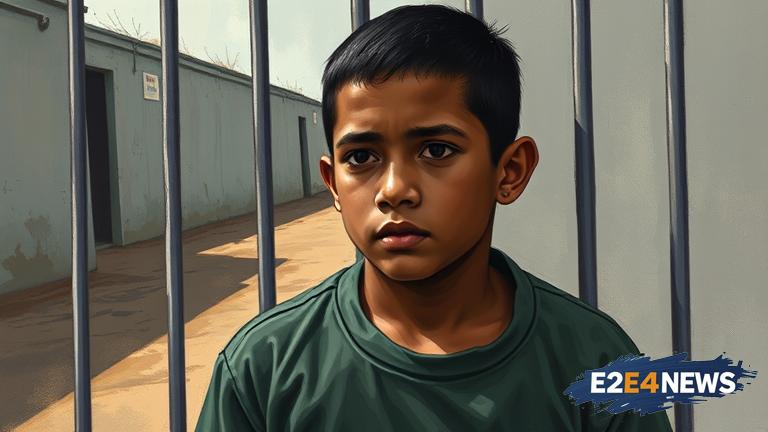The Trump administration’s deportation policy has come under scrutiny after a migrant was sent to a prison in El Salvador. The migrant, who had been living in the United States, was deported back to his home country where he was immediately arrested and sentenced to prison. The case has sparked outrage and criticism from human rights groups and immigration advocates, who argue that the US government is putting migrants’ lives at risk by deporting them to countries with high levels of violence and crime. El Salvador, in particular, has been plagued by gang violence and corruption, making it a dangerous place for deportees to return to. The migrant, who has not been named, had been living in the US for several years before being deported. He had applied for asylum, but his application was denied, and he was sent back to El Salvador. Upon his return, he was arrested by Salvadoran authorities and charged with a crime he claims he did not commit. The migrant’s case is not an isolated incident, as many others have been deported to El Salvador and other Central American countries, only to face persecution, violence, and even death. The Trump administration’s deportation policy has been widely criticized for its harsh and inhumane treatment of migrants, many of whom are fleeing violence and poverty in their home countries. The policy has also been criticized for its lack of transparency and accountability, with many deportees being sent back to their home countries without adequate screening or protection. Human rights groups have called on the US government to reform its deportation policy and provide greater protections for migrants, including the right to apply for asylum and the right to a fair hearing. The US government has defended its deportation policy, arguing that it is necessary to maintain national security and enforce immigration laws. However, critics argue that the policy is overly broad and punitive, and that it fails to take into account the complex and nuanced circumstances of individual migrants. The case of the migrant sentenced to prison in El Salvador is a stark reminder of the human cost of the Trump administration’s deportation policy, and the need for a more compassionate and humane approach to immigration. The US government must take responsibility for the safety and well-being of migrants, and work to create a more just and equitable immigration system. The migrant’s case has also highlighted the need for greater cooperation and coordination between the US and Central American governments to address the root causes of migration and provide greater protections for deportees. Ultimately, the US government must prioritize the human rights and dignity of migrants, and work to create a more just and compassionate immigration system.
